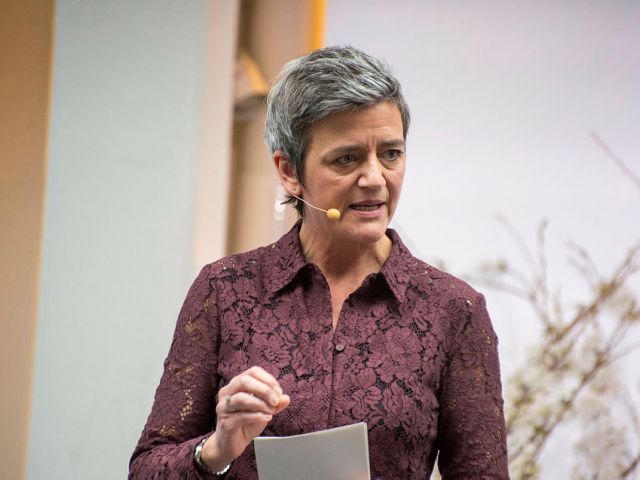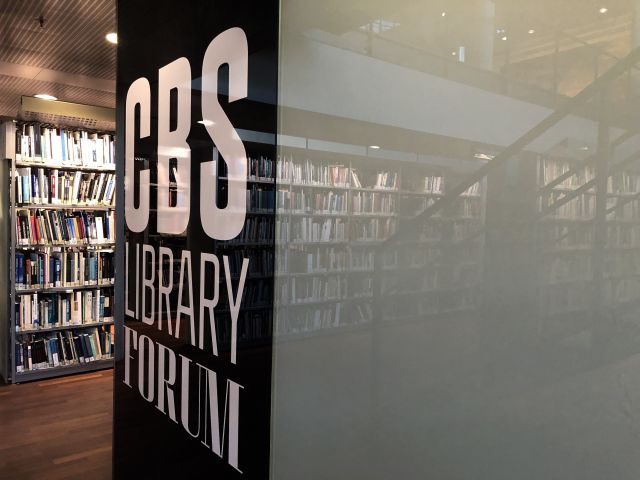Open letter to the university management: Let us show the way towards a more ambitious climate agenda

More than 700 researchers from all eight of Denmark’s universities have signed a climate letter, which has been sent to each of the universities’ leadership around the country. “If we do not start a global transition to a greener society immediately the consequences will be catastrophic.” This is how they have outlined their appeal. Read the letter in full here.
Uncategorized | Updated: December 5th, 2018
On October 8, 2018 the UN’s panel on climate change, IPCC, published its latest report. It should be unnecessary at this time to emphasize the scope and gravity of the threat posed by human-caused climate change.
But the report made it even clearer that it is vital to limit the increase in the global mean temperature to 1.5 degrees, and that achieving this goal will require radical political and social change on a global scale. If we do not start a global transition to a greener society immediately the consequences will be catastrophic.
Though many researchers at Danish universities are highly active in the debate on climate change, there is at present no ambitious climate agenda across the universities. With this letter, we strongly encourage the university management to immediately develop and implement a series of far-reaching policies to drastically reduce the universities’ carbon emissions.
The universities have a particularly heavy responsibility with regard to the implementation of an ambitious climate agenda, for three main reasons.
Firstly, researchers contribute to a particularly high degree of carbon emissions, especially by using air transport to travel to conferences. High emissions offer an equally large potential for reducing the researchers’ climate footprint.
Secondly, scientific authority is a key topic in the fight against climate skepticism. Researchers cannot expect to be taken seriously in the debate on climate change if they do not themselves implement the measures they propose. We have to put our own house in order first if we want others to listen.
Thirdly, the universities are ideally suited to lead the fight against climate change by developing and testing innovative, interdisciplinary and evidence-based measures for reducing carbon emissions. If new solutions are not developed at the universities, where else should they come from?
Like any other large company, the universities have an obligation to assume their share of social responsibility towards their employees and the environment. Furthermore, as a place of learning, the universities have enormous potential for bringing about positive social change in the fight against climate change: through their contact with thousands of young students; teachers can cause a ripple effect throughout society. It is time for the universities to take this responsibility seriously.
We therefore demand that the management account for how it much it plans to reduce the universities’ emissions, as well as the specific policies that are to be implemented to reach this goal, including technical, administrative, behavioral and pedagogical initiatives.
An ambitious and longsighted climate agenda, founded on clear, evidence-based goals for reducing carbon emissions, will necessarily comprise a broad spectrum of far-reaching initiatives, including: 1) drastically reducing flights and supporting climate-friendly alternatives; 2) reducing energy consumption and investing in sustainable energy; 3) investing in technologies that enable remote participation at international conferences; 4) supporting environmental-friendly solutions at the universities’ canteens and conference dinners; and 5) increasing waste sorting.
With eager expectation, we await the university management’s response to these global challenges.
Marc Malmdorf Andersen, Postdoc i leg og læring, Aarhus Universitet.
Sophus Helle, Ph.d.-studerende i Litteraturhistorie, Aarhus Universitet
Felix Riede, Professor I Miljøhumaniora, Aarhus Universitet
Anne Leonora Blaakilde, Lektor ved Institut for Mennesker og Teknologi, Center for Sundhedsfremme, Roskilde Universitet
Nanna B. Hartmann, Seniorforsker i Miljøeffekter af Mikroplast og Nanomaterialer, Danmarks Tekniske Universitet
Joachim Lund, Lektor, Institut for Ledelse, Politik og Filosofi, Copenhagen Business School
Kristian Steensen Nielsen, PhD studerende, Copenhagen Business School
Louise Thomsen, Centre Manager, Copenhagen Business School
Mette Lykke Nielsen, Lektor i Ungdomsforskning, Aalborg Universitet.
Jens Friis Lund, Professor i Politisk Økologi, Københavns Universitet
Astrid Rasch, Lektor i Kulturstudier, tidligere Københavns Universitet
Laura Feldt, Lektor i Religionsstudier, Syddansk Universitet.
More than 600 researchers from all eight of Denmark’s universities have signed this climate letter.


































































































































Comments